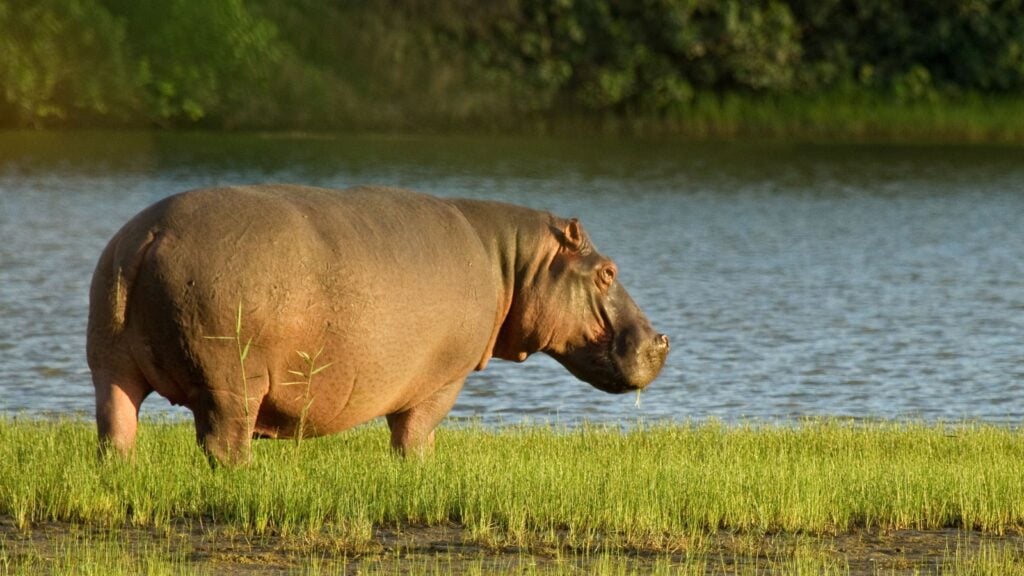Ten African countries are calling for greater protection for hippos, which would result in a ban on the trade of their body parts.
Hippos are currently listed under Appendix II of the Convention on International Trade in Endangered Species of Wild Fauna and Flora (CITES). This means a species is not currently threatened with extinction, “but may become so unless trade is closely controlled.”
From 2009 to 2018, more than 77,000 hippopotamus parts and products were traded within the law.
CITES appendices indicate the level of protection afforded to certain species.
Appendix I is reserved for the most endangered animals and prohibits international trade (unless permitted for scientific research).
Mali, Gabon, Togo, Guinea, Liberia, and five other African countries have submitted a proposal to CITES requesting that hippos are moved up from Appendix II to Appendix I. The reclassification would mean that the international trade of hippo parts would be banned.
The move would likely not include Colombia’s small hippo population.
Vulnerable hippos
Hippos are already listed as Vulnerable in the IUCN Red List of Threatened Species, which the proposal cites as evidence that hippos need more protection.
The IUCN red list includes nine categories, which range from Not Evaluated to Extinct. The Vulnerable category indicates that a species is “considered to be facing a high risk of extinction in the wild.”
The biggest factors in their decline are habitat loss and degradation, according to the co-chair of the IUCN SSC hippo specialist group, Rebecca Lewison.
She told The Guardian: “Common hippos rely on fresh water to survive, and that often puts them in conflict with local communities who also need fresh water for agriculture, energy, fishing, and residential development.”
She added that “hippo-human conflicts” are also increasing, particularly in west Africa. There, she says common hippo numbers are “declining rapidly.”
Now, the CITES secretariat will review the proposal and expert evidence, and assess whether hippos can move to Appendix I.






